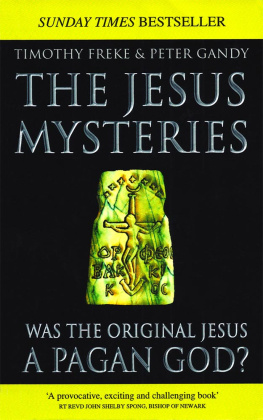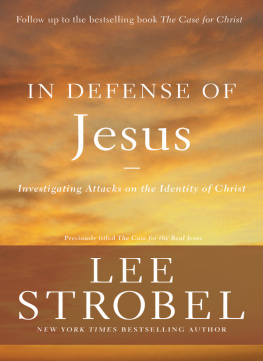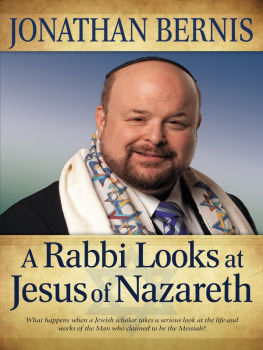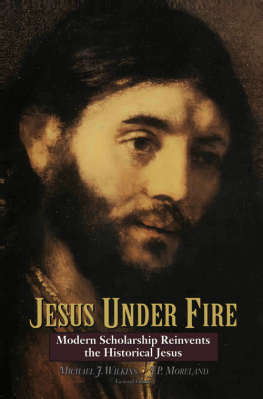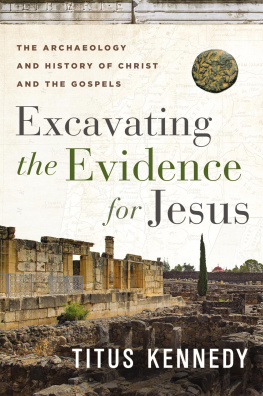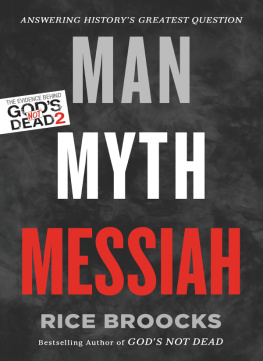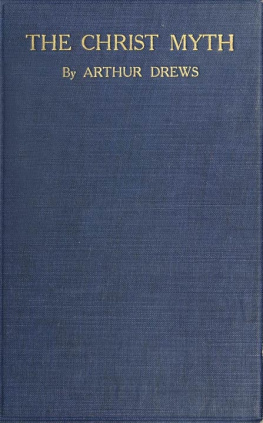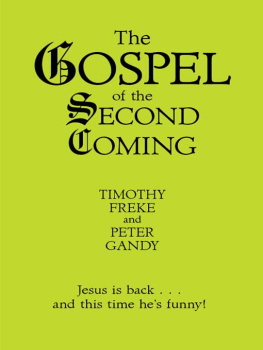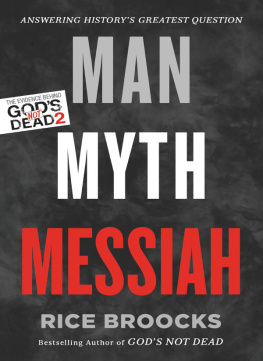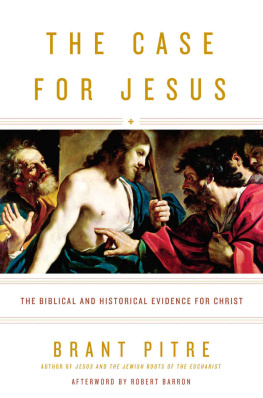CHAPTER 1. THE UNTHINKABLE THOUGHT
Jesus said, 'It is to those who are worthy of my Mysteries that I tell my Mysteries.' ]
The Gospel of Thomas
On the site where the Vatican now stands there once stood a Pagan temple. Here Pagan priests observed sacred ceremonies which early Christians found so disturbing that they tried to erase all evidence of them ever having been practised. What were these shocking Pagan rites? Gruesome sacrifices or obscene orgies perhaps? This is what we have been led to believe. But the truth is far stranger than this fiction.
Where today the gathered faithful revere their Lord Jesus Christ, the ancients worshipped another godman who, like Jesus, had been miraculously born on 25 December before three shepherds. In this ancient sanctuary Pagan congregations once glorified a Pagan redeemer who, like Jesus, was said to have ascended to heaven and to have promised to come again at the end of time to judge the quick and the dead. On the same spot where the Pope celebrates the Catholic mass, Pagan priests also celebrated a symbolic meal of bread and wine in memory of their saviour who, just like Jesus, had declared:
He who will not eat of my body and drink of my blood, so that he will be made one with me and I with him, the same shall not know salvation. ]
When we began to uncover such extraordinary similarities between the story of Jesus and Pagan myth we were stunned. We had been brought up in a culture which portrays Paganism and Christianity as entirely antagonistic religious perspectives. How could such astonishing resemblances be explained? We were intrigued and began to search further. The more we looked, the more resemblances we found. To account for the wealth of evidence we were unearthing we felt compelled to completely review our understanding of the relationship between Paganism and Christianity, to question beliefs that we previously regarded as unquestionable and to imagine possibilities which at first seemed impossible. Some readers will find our conclusions shocking and others heretical, but for us they are merely the simplest and most obvious way of accounting for the evidence we have amassed.
We have become convinced that the story of Jesus is not the biography of an historical Messiah, but a myth based on perennial Pagan stories. Christianity was not a new and unique revelation but actually a Jewish adaptation of the ancient Pagan Mystery religion. This is what we have called 'the Jesus Mysteries Thesis'. It may sound farfetched at first, just as it did initially to us. There is, after all, a great deal of unsubstantiated nonsense written about the 'real' Jesus, so any revolutionary theory should be approached with a healthy dose of scepticism. But although this book makes extraordinary claims, it is not just entertaining fantasy or sensational speculation. It is firmly based upon the available historical sources and the latest scholarly research. Whilst we hope to have made it accessible to the general reader, we have also included copious notes giving sources, references and greater detail for those who wish to analyse our arguments more thoroughly.
Although still radical and challenging today, many of the ideas we explore are actually far from new. As long ago as the Renaissance, mystics and scholars saw the origins of Christianity in the ancient Egyptian religion. Visionary scholars at the turn of the nineteenth century also made comparable conjectures to our own. In recent decades, modern academics have repeatedly pointed towards the possibilities we consider. Yet few have dared to boldly state the obvious conclusions which we have drawn. Why? Because to do so is taboo.
For 2,000 years the West has been dominated by the idea that Christianity is sacred and unique, whilst Paganism is primitive and the work of the Devil. To even consider that they could be parts of the same tradition has been simply unthinkable. Therefore, although the true origins of Christianity have been obvious all along, few have been able to see them, because to do so requires a radical break with the conditioning of our culture. Our contribution has been to dare to think the unthinkable and to present our conclusions in a popular book rather than some dry academic tome. This is certainly not the last word on this complex subject, but we hope it may be a significant call for a complete reappraisal of the origins of Christianity.
THE PAGAN MYSTERIES
In Greek tragedies the chorus reveals the fate of the protagonists before the play begins. Sometimes it is easier to understand the journey if one is already aware of the destination and the terrain to be covered. Before diving deeper into detail, therefore, we would like to retrace our process of discovery and so provide a brief overview of the book.
We had shared an obsession with world mysticism all our lives which recently had led us to explore spirituality in the ancient world. Popular understanding inevitably lags a long way behind the cutting edge of scholarly research and, like most people, we initially had an inaccurate and out-dated view of Paganism. We had been taught to see it as a superstitious culture which indulged in idol worship and bloody sacrifice, and dry philosophers wearing togas stumbling blindly towards what we today call 'science'.

